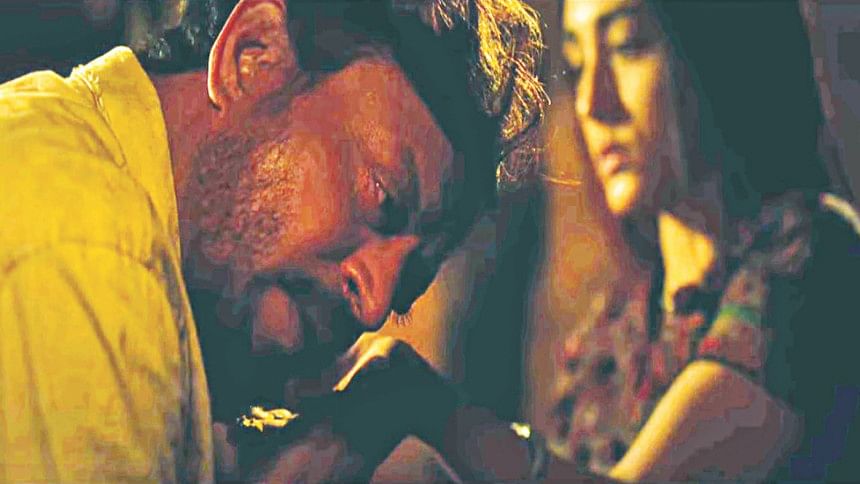The Song of Scorpions: An Indian tale seasoned to Western taste

How far will you go for love? How much will you put at stake, especially if you're a camel trader in the deserts of Rajasthan head over heels for a healer who can cure people of deadly scorpion poison? In The Song of Scorpions, Anup Singh delves into the complex, universal human dynamics of love, loss, and revenge, painting a folk-fable picture that is engrossing if you're not looking too closely.
The third feature by Geneva-based Indian helmer Singh is part of the Voices Main Programme at International Film Festival Rotterdam (IFFR) this year, in which he brings back his trusted compatriot Irrfan Khan to pair up with exiled Iranian actress Golshifteh Farahani.
Nooran (Farahani) is a young, independent girl who goes village to village on call as a scorpion singer – a healer who can de-poison victims of deadly desert scorpion bites through her singing. She lives with and is trained by her grandmother Zubaida (Bollywood legend Waheeda Rehman), and is followed around the dunes of Jaisalmer by camel trader Aadam (Khan), her lorn lover. As Nooran's life gets caught in a rapid spiral, she seeks out an oasis but finds a mirage.
The cast and their performances are among foremost of the marks that the film hits. Irrfan Khan pays back the director's confidence in him in a measured, pinpoint portrayal of a layered character and with it strengthens the director-actor chemistry that began with Singh's sophomore feature “Qissa”. (Khan will also reportedly play the protagonist in his Singh's next project “Lasya: The Gentle Dance” which is said to be the final chapter of a trilogy of sorts.) Farahani blends seamlessly into the story while keeping her ferocity and charm, and the very young Sara Arjun punches beyond her weight as a small but important piece of the narrative. Waheeda Rehman's cameo (for which she also sings in her own voice) is a treat, especially for those who may have followed mainstream Indian cinema of the yesteryears.
The photography by Swiss DOP Pietro Zuercher gives character to the desert backdrop, in slow-sweeping wide-angle camera pans bringing out its vastness in daytime and the subtle game of low light to accentuate the shadows at night, through a large-aperture eye. The sound and production design are also commendable, particularly the costume and indoor sets.
The film, sadly, is not without its pitfalls. Aadam has some essential finer strokes missing - particularly his relationship with his daughter and a visit to the brothel – which fogs up his character motivation. Zubaida's character is also discarded abruptly and is never resolved, essentially making her a plot device, as is (although to a lesser extent) Aadam's daughter.
But my biggest gripe with The Song of Scorpions is some of the film's treatment and directorial choices that speak quite openly about Singh's rather deliberate lean towards a more Western audience. The avoidance of more rounded depiction of societal realities of rural India serves the purpose of the timeless, mythical ambiance he intends and would pose no issues for an international festival audience, but for his audience back home it runs the risk of the screenplay being a little hollow in places. The story, while thematically organic as a folk fable, also feels a little dressed-up for a foreign audience in terms of the story arc and pace. And finally, the deliberate decision to use Western chamber instruments and arrangement for much of the score is a massive missed opportunity and almost feels like pandering to a European market, especially given Rajasthan's gamut of folk instruments and their vast evocative potential.
All of this is not essentially a problem; the film premiered at Locarno last year and was screened at SGIFF. It has all the goods to make the rounds at the festival circuit, but how well it sits with the Indian (or sub-continental) audience will be the real test for this film.
The writer attended the 47th IFFR as a participant of its Young Film Critics Programme. This review was first published on the IFFR Blog.

 For all latest news, follow The Daily Star's Google News channel.
For all latest news, follow The Daily Star's Google News channel. 



Comments